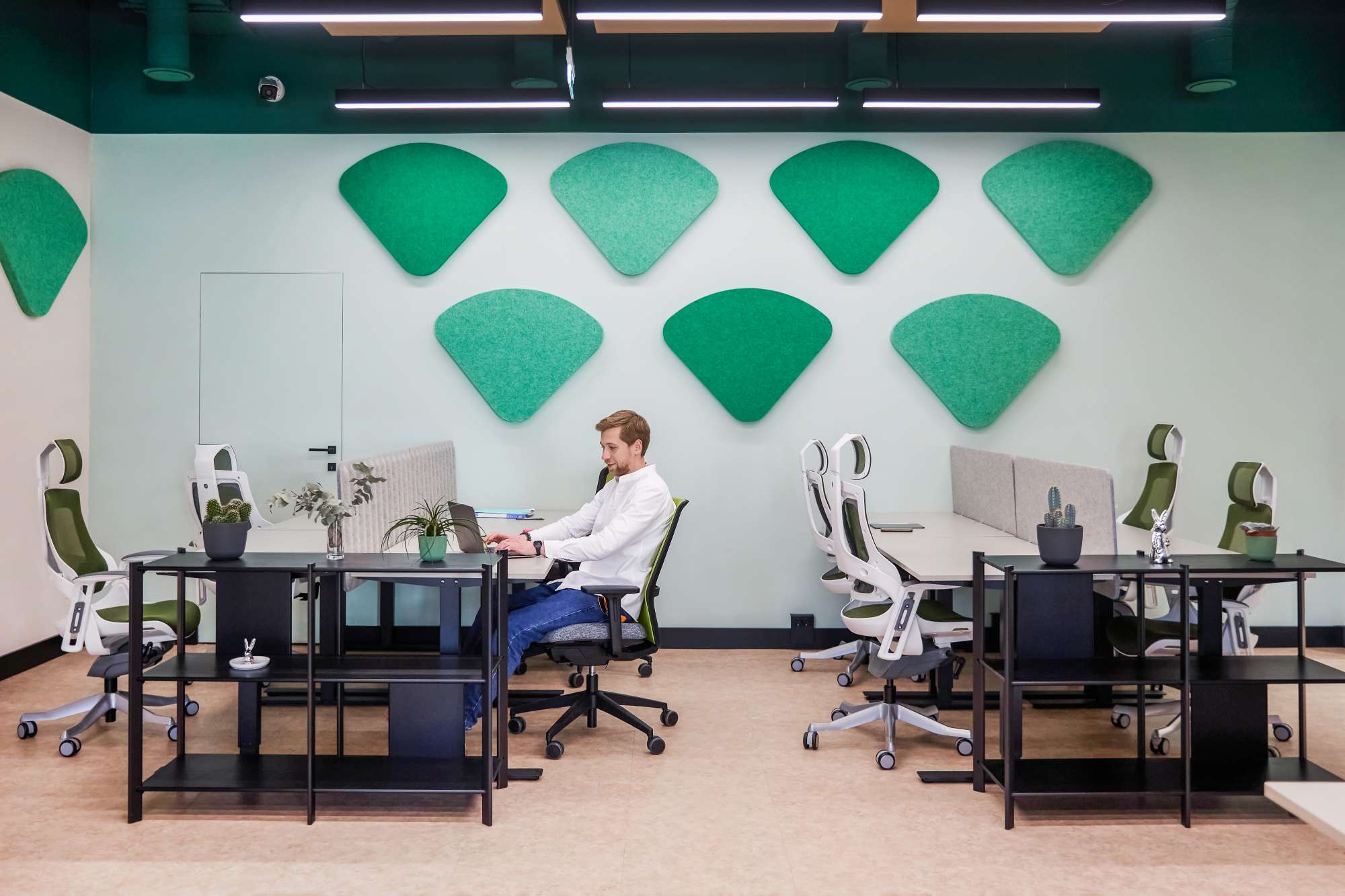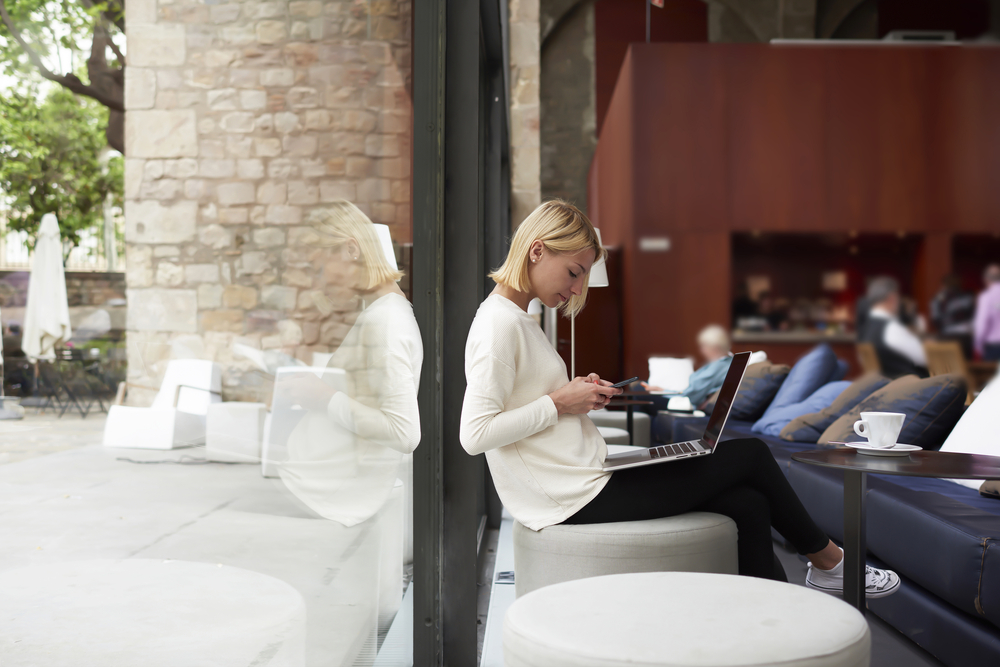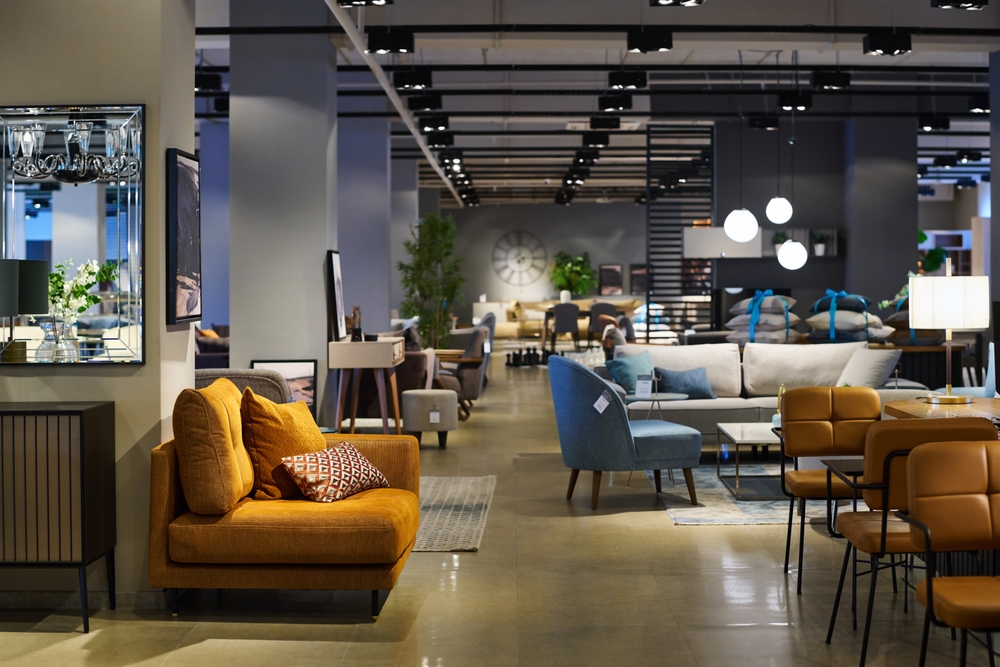
Nine benefits of coworking spaces
In recent years, coworking spaces have emerged as a pivotal element in the evolution of modern work environments. As the landscape of professional life shifts towards greater autonomy and flexibility, these shared workspaces have gained significant traction among freelancers, remote workers, and digital nomads. The allure of coworking spaces lies not only in their practical benefits but also in their ability to foster a sense of community and collaboration among diverse professionals.
In this story
Growth of Coworking Spaces
The growth of coworking spaces is a testament to the changing dynamics of the global workforce. Initially catering to freelancers and startups, these spaces have expanded to attract a wide array of professionals seeking alternatives to traditional office setups. According to recent industry reports, the number of coworking spaces worldwide has skyrocketed, driven by the demand for flexible work arrangements. This expansion is not limited to urban hubs; coworking spaces are now sprouting in smaller cities and even rural areas, catering to the needs of local entrepreneurs and remote employees. The rise of technology and the increasing acceptance of remote work have further accelerated this growth, making coworking spaces an integral part of the future of work.
Importance for Modern Professionals
The importance of coworking spaces for modern professionals cannot be overstated. As more individuals embrace remote work and freelancing, the need for environments that support productivity and innovation has become crucial. Coworking spaces offer this by providing fully equipped workstations, high-speed internet, and a professional atmosphere that is often lacking in home offices. Moreover, they serve as melting pots of creativity and networking, where professionals from various sectors can interact, exchange ideas, and collaborate on projects. For digital nomads, coworking spaces offer a sense of stability and community, often amidst the uncertainty of constant travel. This hybrid model of workspaces is particularly appealing to those who value flexibility and the ability to tailor their work environment to their specific needs, thus enhancing both job satisfaction and performance.
Flexibility and Cost Efficiency

One of the most compelling advantages of coworking spaces is their ability to offer flexibility and cost efficiency, two factors that are crucial for many modern professionals. By providing adaptable lease terms and reducing overhead costs, coworking spaces present a practical and appealing solution for businesses and individuals alike.
Adaptable Lease Terms
Coworking spaces are renowned for their adaptable lease terms, which cater to the diverse needs of their occupants. Unlike traditional office leases that often require lengthy commitments and significant financial investments, coworking spaces offer a range of options from daily passes to monthly memberships. This flexibility is particularly beneficial for startups and freelancers who may experience fluctuating workloads and income. It allows them to scale their workspace requirements up or down based on their current needs without being locked into long-term contracts. For instance, a tech startup in its early stages can easily expand its space as it grows without the burden of renegotiating a traditional lease. This adaptability helps businesses remain agile and responsive in an ever-changing economic landscape.
Reduced Overhead Costs
In addition to flexibility, coworking spaces significantly reduce overhead costs, making them an economically viable option for many. Traditional office spaces often come with high costs associated with rent, utilities, maintenance, and furnishing, which can be prohibitive for small businesses and freelancers. Coworking spaces mitigate these expenses by offering all-inclusive pricing models that cover essentials such as internet access, office furniture, electricity, and even cleaning services. This not only alleviates the financial burden on businesses but also allows them to allocate resources more efficiently towards growth and innovation. For example, an independent consultant can benefit from a fully equipped workspace without incurring the costs of setting up a personal office. This cost efficiency makes coworking spaces an attractive option for professionals seeking to maximize their budget while enjoying a professional and conducive work environment.
Networking Opportunities

Coworking spaces are not just about providing a place to work; they are vibrant ecosystems designed to foster networking opportunities among professionals from diverse industries. These spaces are thoughtfully curated to facilitate interactions that can lead to meaningful professional relationships, collaboration, and innovation. Two key elements that contribute to this networking potential are community events and chance encounters.
Community Events
Community events are a cornerstone of the coworking experience, serving as organized opportunities for members to connect, learn, and collaborate. These events can range from professional development workshops and industry-specific meetups to social gatherings and informal networking sessions. By participating in these events, members have the chance to showcase their expertise, gain insights from peers, and explore potential collaborations. For instance, a marketing professional attending a digital strategy workshop may discover new tools and techniques while also forming connections with other marketers, designers, and tech enthusiasts. These interactions often lead to collaborations on projects, referral opportunities, and even long-term partnerships. The structured nature of community events ensures that members have regular and purposeful opportunities to engage with one another, enriching their professional networks and enhancing their overall coworking experience.
Chance Encounters
Beyond structured events, coworking spaces are uniquely designed to encourage chance encounters, which often result in serendipitous networking opportunities. The open and communal layout of these spaces facilitates spontaneous interactions, whether it’s a conversation over coffee in the shared kitchen or a discussion sparked by sitting next to someone new. These casual encounters can lead to unexpected collaborations and exchanges of ideas that might not occur in more traditional office settings. For example, a software developer might strike up a conversation with a graphic designer at a shared work table, leading to a collaboration on a new app interface. The diversity of professionals within a coworking space means that every interaction has the potential to provide fresh perspectives and opportunities. This organic form of networking is one of the unique advantages of coworking spaces, offering members the chance to expand their professional circles in an informal and often more genuine manner.
Increased Productivity

Coworking spaces have emerged as catalysts for increased productivity among professionals seeking an optimal work environment. They provide a structured environment that fosters focus and efficiency while minimizing the distractions commonly associated with working from home. This unique combination makes coworking spaces a preferred choice for many remote workers, freelancers, and entrepreneurs aiming to enhance their work output.
Structured Environment
A key factor in the productivity boost offered by coworking spaces is their structured environment. Unlike the often chaotic and informal setting of a home office, coworking spaces are designed to emulate a professional workspace with designated areas for different activities. This structure includes quiet zones for focused work, collaborative areas for group discussions, and meeting rooms for private conversations. The presence of a structured routine, such as regular working hours and professional conduct, further instills a sense of discipline and motivation. For instance, an entrepreneur might find that starting their day in a dedicated workspace helps establish a clear boundary between work and personal life, setting the tone for a productive day. The physical separation from home also helps reinforce this work mindset, encouraging individuals to maintain focus and adhere to their professional goals.
Less Home Distractions
In addition to providing structure, coworking spaces significantly reduce the distractions that are often encountered when working from home. Home environments can be filled with interruptions, such as household chores, family responsibilities, or the lure of personal entertainment. These distractions can break concentration and reduce productivity. Coworking spaces offer an escape from these interruptions, providing a dedicated space where professionals can concentrate solely on their work. The presence of like-minded individuals also creates an atmosphere of accountability, motivating members to stay on task and maximize their productivity. For example, a freelance writer might choose a coworking space to avoid the temptation of home distractions, such as television or domestic tasks, thereby achieving a more focused and productive work session. By mitigating these distractions, coworking spaces allow individuals to dedicate their time and energy entirely to their professional endeavors, leading to enhanced productivity and job satisfaction.
Access to Amenities

Coworking spaces are distinguished by their comprehensive access to a wide array of amenities, which are essential in supporting the diverse needs of modern professionals. From top-notch office equipment and facilities to versatile meeting rooms and event spaces, these amenities play a crucial role in enhancing the overall work experience and efficiency for individuals and teams alike.
Office Equipment and Facilities
One of the primary benefits of coworking spaces is the access to state-of-the-art office equipment and facilities, which are often beyond the reach of individual freelancers or small businesses operating from home. These spaces are equipped with high-speed internet, printers, scanners, and other essential office technologies that are crucial for seamless work operations. Additionally, coworking spaces provide ergonomic furniture designed to promote comfort and productivity, which can significantly enhance the work experience. For example, an independent graphic designer might not have the resources to invest in a high-quality printer or specialized software at home, but in a coworking space, these tools are readily available, allowing the designer to deliver professional-grade projects efficiently. The availability of such equipment not only reduces the financial burden on professionals but also ensures that they have the technological support needed to excel in their work.
Meeting Rooms and Event Spaces
In addition to office equipment, coworking spaces offer access to well-appointed meeting rooms and event spaces, which are essential for hosting professional gatherings. These spaces are equipped with the latest audiovisual technology, comfortable seating, and other amenities that facilitate effective communication and collaboration. Whether it’s a conference call with international clients or a brainstorming session with team members, having access to professional meeting rooms ensures that interactions are conducted smoothly and without interruption. Furthermore, event spaces within coworking environments provide opportunities to host workshops, seminars, and networking events, which can be pivotal in business development and community engagement. For instance, a startup looking to launch a new product can utilize these event spaces to host a launch party, attracting potential clients and collaborators in a professional setting. This access to meeting and event spaces not only enhances the professional image of individuals and businesses but also expands their ability to connect and grow within their industry.
Collaboration and Innovation

At the heart of coworking spaces lies a vibrant ecosystem that fosters collaboration and innovation among professionals from diverse backgrounds. These dynamic environments are uniquely designed to facilitate cross-industry interaction and encourage the exchange of ideas, which can lead to groundbreaking partnerships and innovative solutions.
Cross-Industry Interaction
Coworking spaces are melting pots of talent and expertise, bringing together professionals from various industries under one roof. This cross-industry interaction is a hallmark of coworking environments, offering members the opportunity to engage with individuals from different fields, including technology, design, marketing, finance, and more. Such diversity enriches the community by providing a wide range of perspectives and skills, which can inspire new ways of thinking and problem-solving. For instance, a software developer working alongside a marketing strategist might gain insights into consumer behavior, which can be invaluable in tailoring tech solutions to meet market demands. Similarly, a graphic designer may collaborate with a data analyst to create visually compelling data presentations. These interactions not only enhance individual knowledge but also pave the way for innovative approaches that transcend traditional industry boundaries.
Idea Exchange and Partnerships
The open and collaborative nature of coworking spaces fosters an environment where idea exchange is not only encouraged but thrives. Members are often inspired to share their expertise, seek feedback, and brainstorm collectively, leading to the spontaneous generation of new ideas and concepts. This culture of openness creates fertile ground for partnerships that might not have formed in more isolated work settings. For example, a freelance writer might team up with a web developer to create engaging online content platforms, combining their strengths to produce a product neither could achieve alone. Additionally, coworking spaces often host networking events and workshops that further facilitate connections and collaborations among members. These platforms provide opportunities for professionals to identify potential partners and explore synergies that can lead to joint ventures or new business opportunities. Through such partnerships, coworking spaces become incubators for innovation, driving progress and success for the individuals and businesses they host.
Professional Development

Coworking spaces are not only places to work but also hubs for continuous professional development. They offer a range of opportunities for individuals to enhance their skills and expand their knowledge through workshops, seminars, and skill-sharing sessions. These initiatives are integral to fostering a culture of growth and learning within the coworking community.
Workshops and Seminars
Workshops and seminars are key components of professional development in coworking spaces. These events are frequently organized by the coworking community or external experts to provide members with insights into the latest industry trends, technologies, and best practices. Workshops tend to be interactive, allowing participants to engage directly with the material and apply new skills in a supportive environment. For example, a digital marketing workshop might cover the latest strategies in social media advertising, providing attendees with practical tools they can implement in their own projects. Seminars, on the other hand, often feature industry leaders and guest speakers who share their experiences and knowledge, offering valuable perspectives on career advancement and business development. By attending these events, members can stay up-to-date with industry advancements, thus enhancing their professional competencies and competitive edge.
Skill-Sharing Sessions
Skill-sharing sessions are another valuable resource offered by coworking spaces, where members are encouraged to share their unique expertise with others. These sessions foster a collaborative learning environment, where professionals can both teach and learn from their peers. For instance, a graphic designer might lead a session on using the latest design software, while a financial consultant could offer insights into budgeting and financial planning for small businesses. This exchange of skills not only broadens the knowledge base of participants but also strengthens community ties by emphasizing mutual support and collaboration. Moreover, skill-sharing sessions often lead to the discovery of new interests and potential career paths, as members are exposed to a variety of disciplines and techniques. This communal approach to learning enriches the coworking experience, making it a dynamic space for personal and professional growth.
Improved Work-Life Balance

Coworking spaces play a vital role in promoting a healthy work-life balance, a crucial aspect for professionals striving to maintain productivity while ensuring personal well-being. By offering a clear separation between work and home environments, alongside comprehensive wellness programs, coworking spaces empower individuals to achieve a harmonious balance between their professional and personal lives.
Separation of Work and Home
One of the significant challenges faced by remote workers and freelancers is the blurring of boundaries between work and personal life. Coworking spaces address this issue by providing a distinct and dedicated workspace away from the home environment. This separation is essential for creating a mental distinction between professional and personal time, helping individuals to focus more effectively on their tasks during work hours and fully disengage at the end of the day. For example, a graphic designer who typically works from home might find it difficult to switch off in the evening, as the lines between work and relaxation become indistinct. By utilizing a coworking space, they can complete their work in a professional setting and return home to a space that is purely personal, thereby reinforcing the boundary between work and rest. This delineation helps reduce stress, prevent burnout, and supports a more balanced lifestyle.
Wellness Programs
Beyond providing physical space, many coworking environments also offer wellness programs designed to enhance the overall well-being of their members. These programs can include yoga classes, meditation sessions, fitness challenges, and workshops on stress management and healthy living. By integrating wellness into the workday, coworking spaces acknowledge the importance of physical and mental health in achieving sustained productivity and satisfaction. For instance, a digital nomad who spends long hours at their desk can benefit from a midday yoga session offered by their coworking space, helping to alleviate physical tension and refresh their mind. Additionally, these wellness initiatives often foster a sense of community and camaraderie among members, as they participate in activities that promote a healthy lifestyle together. By prioritizing wellness, coworking spaces not only enhance individual health but also contribute to a positive and supportive work environment, ultimately leading to improved work-life balance.
Sense of Community

A defining characteristic of coworking spaces is the strong sense of community they cultivate, which is essential for fostering a sense of belonging and providing vital support to their members. This communal atmosphere not only enhances professional and personal satisfaction but also offers significant mental health benefits, making coworking spaces a nurturing environment for diverse professionals.
Belonging and Support
Coworking spaces are designed to create a welcoming environment where individuals from various backgrounds can feel a sense of belonging. This is achieved through intentional community-building activities such as social events, collaborative projects, and shared spaces that encourage interaction. Members often form connections with one another, leading to supportive relationships that mimic the camaraderie found in traditional office settings. For example, a freelance writer might find themselves part of a peer group that offers feedback on projects and provides encouragement during challenging times. This network of support helps members feel integrated into a community, reducing the isolation often experienced by those who work independently. The sense of belonging fostered in coworking spaces not only enhances job satisfaction but also promotes a collaborative spirit, where members are eager to contribute to and benefit from the collective knowledge and resources of the community.
Mental Health Benefits
The community aspect of coworking spaces also plays a significant role in promoting mental health. By providing opportunities for social interaction and collaboration, coworking spaces help alleviate feelings of loneliness and isolation, which are common challenges for remote workers and freelancers. Engaging with others in a positive and supportive environment can significantly boost mental well-being, providing a sense of purpose and connection. Additionally, coworking spaces often offer workshops and resources focused on mental health awareness and self-care, further supporting the psychological well-being of their members. For instance, regular mindfulness sessions or mental health talks might be organized to equip members with strategies for managing stress and maintaining a healthy work-life balance. By prioritizing mental health, coworking spaces not only enhance the individual well-being of their members but also cultivate a resilient and thriving community, where everyone feels valued and supported.
Global Accessibility
The proliferation of coworking spaces across the globe has significantly enhanced the accessibility of professional work environments for remote workers, freelancers, and digital nomads. This global reach ensures that no matter where professionals find themselves, they can always access a conducive workspace that meets their needs, thus facilitating seamless work transitions and connectivity.
Coworking Spaces Worldwide
Coworking spaces have become a ubiquitous feature in cities and towns worldwide, offering standardized facilities and services that cater to the demands of modern professionals. This global network provides individuals with the flexibility to work from virtually any location without compromising on the quality of their workspace. Whether in bustling metropolises or serene rural settings, coworking spaces provide essential amenities such as high-speed internet, office equipment, and collaborative environments that enable productivity and innovation. For example, a digital nomad traveling through Southeast Asia can easily find a coworking space in Bangkok or Bali, ensuring they maintain their professional routine while exploring new cultures. This worldwide network not only supports the logistical needs of remote work but also enriches the experience by connecting professionals with diverse communities and cultures, fostering a sense of global connectivity and collaboration.
Example: Monteco in Budva, Montenegro
An exemplary illustration of global accessibility in coworking is Monteco, located in Budva, Montenegro. Nestled just steps away from the Adriatic Sea, Monteco offers a unique blend of a relaxed yet professional environment, perfectly suited to both work and leisure. This coworking space provides state-of-the-art facilities, including ergonomic workstations, meeting rooms, and high-speed internet, catering to the needs of a diverse clientele of local entrepreneurs and international digital nomads. The scenic location not only offers a stunning backdrop for work but also provides numerous recreational opportunities, allowing members to unwind and recharge. Monteco exemplifies how coworking spaces can integrate the charm of local culture with professional amenities, creating a harmonious balance that appeals to global professionals seeking both productivity and a high quality of life. This blend of work and lifestyle options underscores the global accessibility and attractiveness of coworking spaces, making them an indispensable resource for today’s mobile workforce.
Conclusion
As the world of work continues to evolve, coworking spaces have emerged as pivotal environments that cater to the diverse needs of modern professionals. They offer an impressive array of benefits that enhance productivity, foster collaboration, and promote well-being, making them an attractive option for freelancers, remote workers, and businesses alike.
Summary of Benefits
Coworking spaces provide a flexible and cost-efficient solution, allowing individuals and companies to scale their workspace needs without the burden of long-term leases. The networking opportunities available in these spaces are unparalleled, as they bring together professionals from various industries, facilitating cross-industry interaction and the exchange of ideas. This collaborative atmosphere often leads to innovative partnerships and creative solutions. In terms of productivity, coworking spaces offer a structured environment free from the distractions of home, equipped with state-of-the-art amenities and facilities. Additionally, they support professional development through workshops and skill-sharing sessions, enabling members to continuously grow and adapt in their careers. The emphasis on community and mental health further enriches the coworking experience, providing a supportive network that enhances personal and professional satisfaction. Finally, with their global accessibility, coworking spaces allow professionals to work efficiently from virtually anywhere in the world, integrating seamlessly into various cultural and geographical landscapes.
Encouragement to Explore Coworking Spaces
Given the myriad benefits, exploring coworking spaces can be a transformative step for those looking to enhance their professional journey. Whether you are a freelancer seeking a productive environment, a remote worker in need of community, or a business aiming to foster innovation, coworking spaces offer the resources and atmosphere to support your goals. By stepping into a coworking space, you open yourself to a world of possibilities—where you can connect with like-minded individuals, access diverse opportunities, and thrive in a setting designed to meet the demands of modern work life. Whether in a bustling city or a tranquil seaside town like Budva, Montenegro, coworking spaces provide a unique blend of functionality and inspiration, inviting you to redefine how and where you work.




Leave a Reply